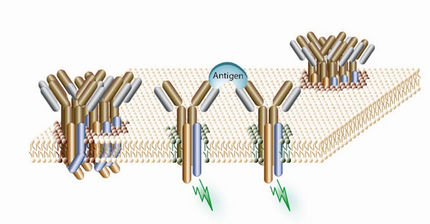Crucell Announces Start of Universal RSV Vaccine Program
Advertisement
Crucell N.V. announced the start of a discovery program leading to the development and commercialization of a universal respiratory syncytial virus (RSV) vaccine. The RSV vaccine will be designed to prevent severe infections with the most common RSV strains in infants and the elderly. This discovery program is part of the existing strategic collaboration with Johnson & Johnson, through its subsidiary Ortho-McNeil-Janssen Pharmaceuticals, Inc., signed in September 2009, to develop innovative products, including antibodies for influenza prevention and treatment.
RSV is the most important cause of viral lower respiratory illness in infants and children. RSV-induced disease is the last of the major paediatric diseases for which no preventive vaccine is available. Current prevention in developed countries is based on the administration of an RSV-neutralizing antibody, which is given to high-risk infants, in particular premature newborns. RSV also induces severe disease in immunocompromized adults and elderly with weak immune systems, for whom the costly antibody is not available.
"Crucell is delighted to work on developing a vaccine against RSV", said Ronald Brus, Crucell Chief Executive Officer. "A vaccine that prevents severe RSV infections and death in infants will be a tremendous advance for the paediatric vaccine field. We expect that an RSV vaccine will be the next frontier in children's vaccines for inclusion in the routine immunization of newborns. Based on our continuously growing experience in the respiratory field, as well as our in-house expertise, we are confident that we can make great strides towards our goal of a best-in-class RSV vaccine."
Other news from the department business & finance
Most read news
More news from our other portals
See the theme worlds for related content
Topic world Antibodies
Antibodies are specialized molecules of our immune system that can specifically recognize and neutralize pathogens or foreign substances. Antibody research in biotech and pharma has recognized this natural defense potential and is working intensively to make it therapeutically useful. From monoclonal antibodies used against cancer or autoimmune diseases to antibody-drug conjugates that specifically transport drugs to disease cells - the possibilities are enormous

Topic world Antibodies
Antibodies are specialized molecules of our immune system that can specifically recognize and neutralize pathogens or foreign substances. Antibody research in biotech and pharma has recognized this natural defense potential and is working intensively to make it therapeutically useful. From monoclonal antibodies used against cancer or autoimmune diseases to antibody-drug conjugates that specifically transport drugs to disease cells - the possibilities are enormous




















































